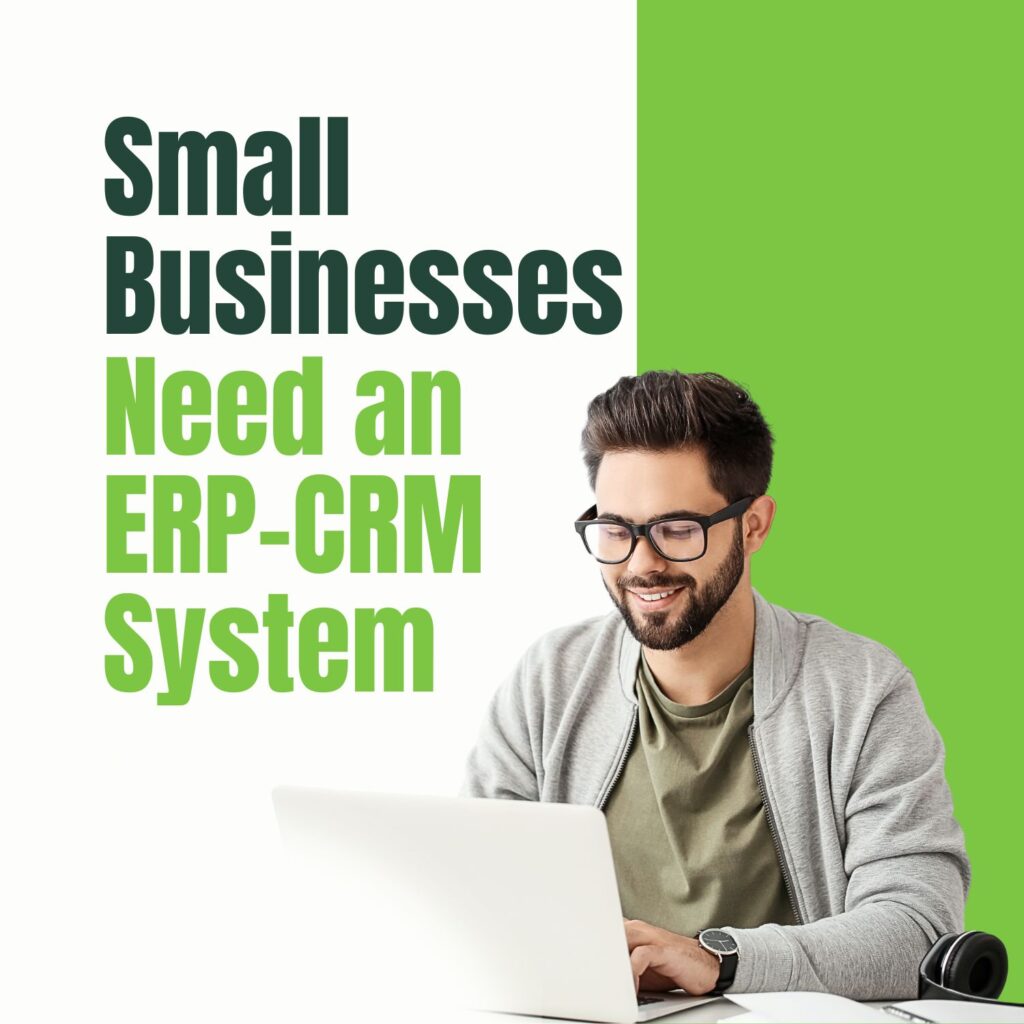Introduction
Running a small business comes with a unique set of challenges. From managing customer relationships to tracking financial transactions, every aspect requires efficiency and precision. In today’s digital era, relying on disparate software tools can create inefficiencies, data silos, and potential errors. This is where an integrated ERP-CRM system proves invaluable.
Enterprise Resource Planning (ERP) and Customer Relationship Management (CRM) systems streamline operations by combining sales, marketing, finance, inventory, and customer data into a single platform. This blog post will explore why small businesses need an ERP-CRM system and how it can transform business operations.
1. Centralized Data Management
One of the biggest challenges for small businesses is managing multiple databases across different departments. With an ERP-CRM system, all business-critical information is stored in one place, ensuring consistency, accuracy, and easy access to data.
For example:
- Sales teams can access customer purchase history instantly.
- Marketing teams can track campaign performance and customer responses.
- Accounting departments can monitor invoices and payments in real-time.
This seamless data integration eliminates the need for redundant data entry and minimizes errors.
2. Improved Customer Relationship Management
A CRM system is essential for maintaining strong customer relationships. It allows small businesses to:
- Track customer interactions and preferences.
- Automate follow-ups and engagement strategies.
- Provide personalized experiences based on customer data.
When combined with an ERP, businesses gain additional insights into customer behavior, such as purchase trends, payment history, and support interactions, enabling them to offer better service and anticipate needs proactively.
3. Enhanced Operational Efficiency
Manual data entry and fragmented systems slow down operations. An ERP-CRM system streamlines business processes by automating routine tasks such as:
- Order processing and inventory management.
- Generating invoices and tracking payments.
- Scheduling appointments and follow-ups.
By automating these functions, small businesses can improve productivity and allocate resources more efficiently.
4. Better Financial Management
Managing finances can be overwhelming for small business owners. An ERP-CRM system simplifies financial tasks by integrating accounting functions such as:
- Expense tracking and budgeting.
- Automatic invoice generation.
- Real-time financial reporting.
With built-in financial tools, business owners can gain better control over their cash flow and make informed financial decisions.
5. Data-Driven Decision Making
Access to accurate data is crucial for making informed business decisions. An ERP-CRM system provides comprehensive analytics and reporting tools, allowing businesses to:
- Track key performance indicators (KPIs).
- Monitor sales trends and customer behavior.
- Forecast revenue and business growth.
These insights help businesses adjust strategies, optimize operations, and stay competitive in the market.
6. Scalability and Growth Support
Small businesses often struggle with scaling operations due to limited resources. An ERP-CRM system is designed to grow with the business, offering:
- Customizable modules to fit specific business needs.
- Cloud-based solutions for remote access and collaboration.
- Integration with third-party tools and services.
With a scalable system in place, businesses can expand without worrying about operational bottlenecks.
7. Compliance and Security
Regulatory compliance and data security are critical concerns for any business. ERP-CRM systems provide robust security features, including:
- Data encryption and access controls.
- Compliance with industry regulations such as GDPR.
- Audit trails to track changes and maintain transparency.
By implementing an ERP-CRM system, businesses can safeguard sensitive information and ensure compliance with legal standards.
8. Cost Savings in the Long Run
While implementing an ERP-CRM system requires an initial investment, it leads to significant cost savings over time by:
- Reducing manual labor and administrative costs.
- Minimizing errors and improving efficiency.
- Enhancing customer retention and increasing revenue.
A well-integrated system ultimately improves profitability by optimizing business operations.
Conclusion
For small businesses looking to streamline operations, improve customer relationships, and drive growth, an ERP-CRM system is a game-changer. By centralizing data, automating workflows, and providing valuable insights, businesses can operate more efficiently and compete effectively in the market.
Investing in an ERP-CRM system is not just about technology—it’s about empowering businesses with the tools needed for success in a fast-paced, digital world. If you haven’t considered integrating one yet, now is the time to take action and future-proof your business.


